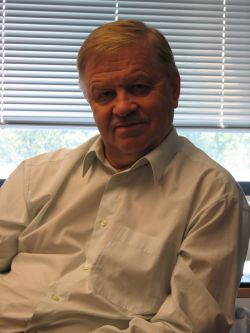 |
Issue 20 (1/2007)
|
|||
FSD Bulletin is the electronic newsletter of the Finnish Social Science Data Archive. The Bulletin provides information and news related to the data archive and social science research.
|
ISSP 2008 Survey - A Cross-Cultural Challenge for ResearchersProfessors Raimo Blom and Harri Melin are members in the multicultural drafting group for the 2008 module Religion of the International Social Survey Programme (ISSP). The drafting group prepares a preliminary version of the source questionnaire which will be finalised at a general assembly of all ISSP members. The 2008 module concentrates on religion and religious issues, and presents researchers with a number of cross-cultural and political challenges. Raimo Blom and Harri Melin have for six years attended the general assembly where ISSP modules are finalised, and have participated in giving feedback on nearly-finalised draft questionnaires. Now they have an opportunity to influence the content of a module at an early stage. Long and democratic module development
ISSP modules undergo a long, multistage drafting process. The decision to concentrate the 2008 module on religion was made in 2005, and Tom W. Smith from the USA chairs the drafting group. In addition to the Finnish members, the group has members from Bulgaria, South Korea, Mexico and Germany. Raimo Blom says that the drafting group has a major influence on the content of the module. Cultural diversity highlightedReligion is a good example of a challenging theme for cross-cultural surveys, particularly as the survey will be fielded in different parts of the world. He explains that the 2008 survey will be exceptionally extensive as it will be fielded in some countries which are not ISSP members. Tom W. Smith managed to get funding from the John Templeton Foundation for this. The five countries added (India, and some Islamic and African countries) represent religious traditions underrepresented by the 40 countries currently participating in the ISSP. Blom thinks that cultural diversity makes developing the module very interesting and difficult at the same time. The drafting group meets several times during the process, and has e-mail discussions on module content, themes and questions. Rigorous processThe ISSP 2008 module has now been pre-tested in several countries, particularly in the home countries of the drafting group members. The pre-test module does not include all questions of the 2008 module. After pre-testing, the drafting group prepares a final draft questionnaire which will then be finalised in the general assembly. Each participating country has one vote. Members can propose new questions during the general assembly but it is not likely that they will be accepted. After all, participating countries have had time to make comments on the module at earlier stages. New formulations may be accepted, though. New questions versus comparabilityThe drafting group and its chair have a lot of influence. If ISSP members propose new questions to a module and the drafting group disagrees, the chance that the new questions will be included is small. Raimo Blom himself has proposed new questions on knowledge work for the Work Orientations module, so far without success. It is even more difficult to have a new theme for a module accepted. Nevertheless, the ISSP 2007 module has a brand new theme Leisure Time and Sports, mainly due to the efforts of Professor Max Haller from Austria. Blom says, however, that it is also an advantage that adding new questions or themes is difficult. Repeating certain themes at regular intervals with many of the same questions, like ISSP modules do, allows comparisons over time. TranslationAfter a module has been finalised, each participating country prepares a version in its own language(s). In Finland, this is done by a team consisting of professors Blom and Melin and staff members of the FSD, including the archive's in-house translator. First, the team members prepare 2-4 preliminary translations independently, and then the team meets to discuss their merits and drawbacks. Direct translation is not always feasible. The final Finnish version is produced in due course after several rounds of discussions and check-ups. Statistics Finland will then translate the questionnaire into Swedish, Finland's other official language. More information on ISSP
|
